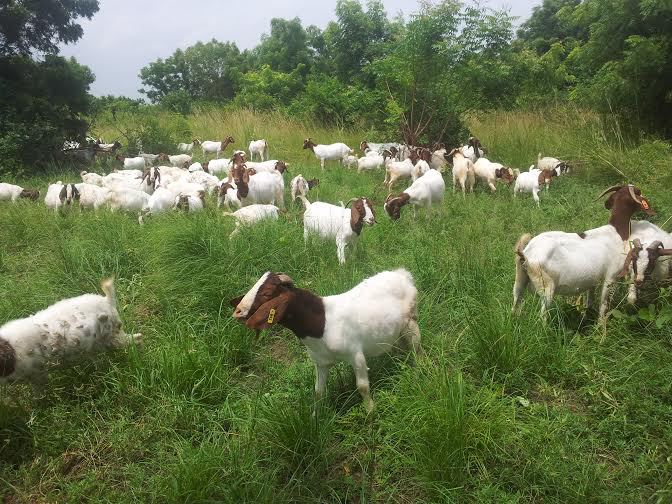A specialized task force with unmatched natural ability in waging war to protect South Africa’s biodiversity. It’s an army of Boer goats. Port Jackson, Wattle, and Cluster Pine, are just a few examples of invasive plants that have called the Eastern Cape home. These invasive plants consume more water than native plants, fan wildfires, reduce agricultural productivity, and choke out native plants.
It costs South Africa about R2 Billion a year to remove and destroy the invasive plants. Goats are a cheaper and more sustainable alternative. The mission began on a farm outside of Cape St. Francis in the Eastern Cape. The army is transported to the “drop zone”, this could consist of unused farm land, or a property that needs clearing before a fire season. The goats feed on the invasive vegetation under the watchful eye of their handler.
The goat army consists of 300 Boer goats; they eat shrubs, and canopies of trees fallen by their handlers. Once an area is clear the goats are fed their feed with added seeds of native plants, which are deposited in the goats manure. Goats have been used in places like California, and Australia for some time now. One goat can clear up to 3.3 square meters of vegetation a day.
Funds generated by the land cleared or donations go directly to the goats and their care. This includes food, medical care, and additional shelters during kidding season. The army also generates additional funds by selling the invasive trees as firewood. The trees taken down by the handlers and feasted on by the goats, are then cut up and sold for firewood.
By: Alexandria Gregson

.png)

No comments:
Post a Comment